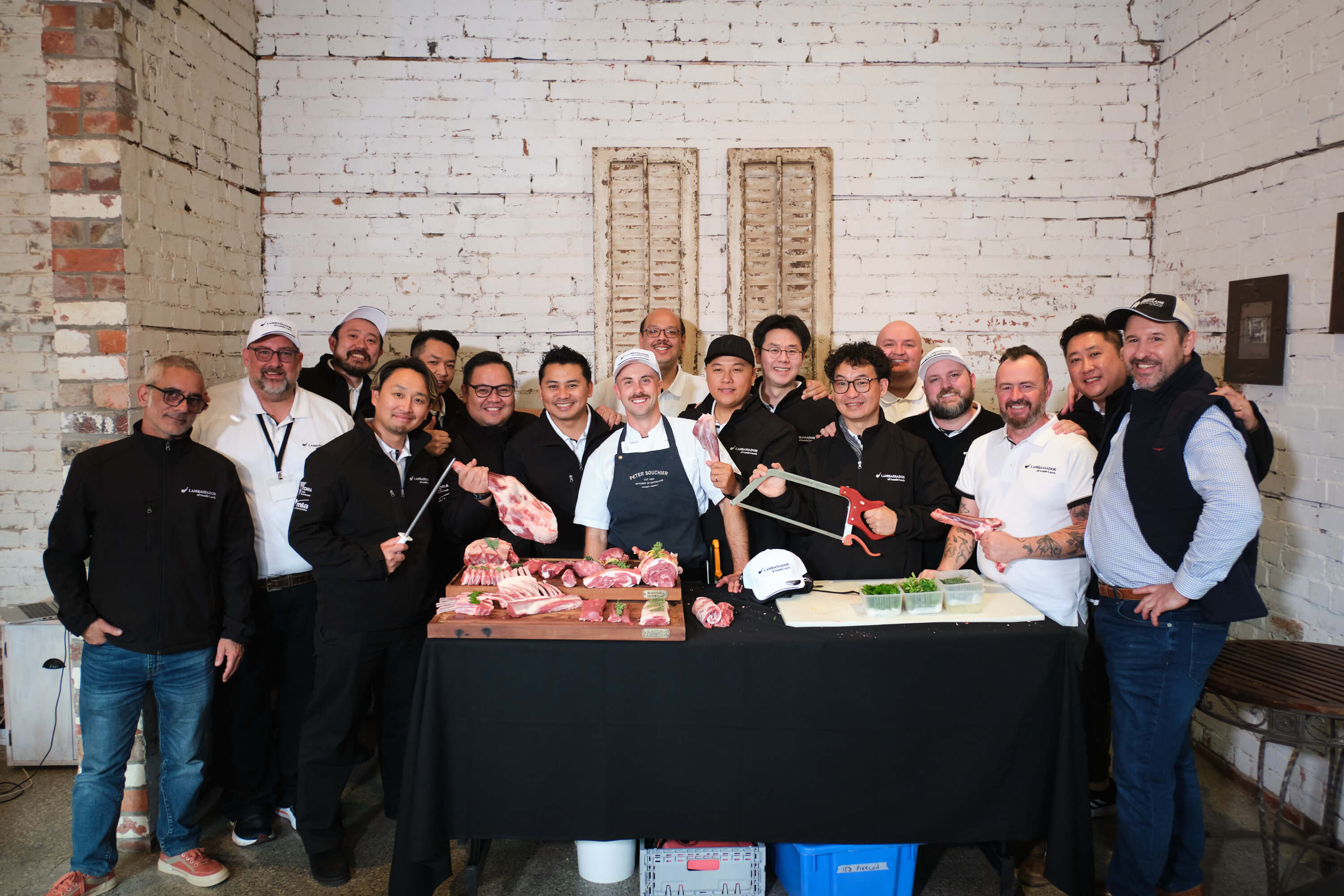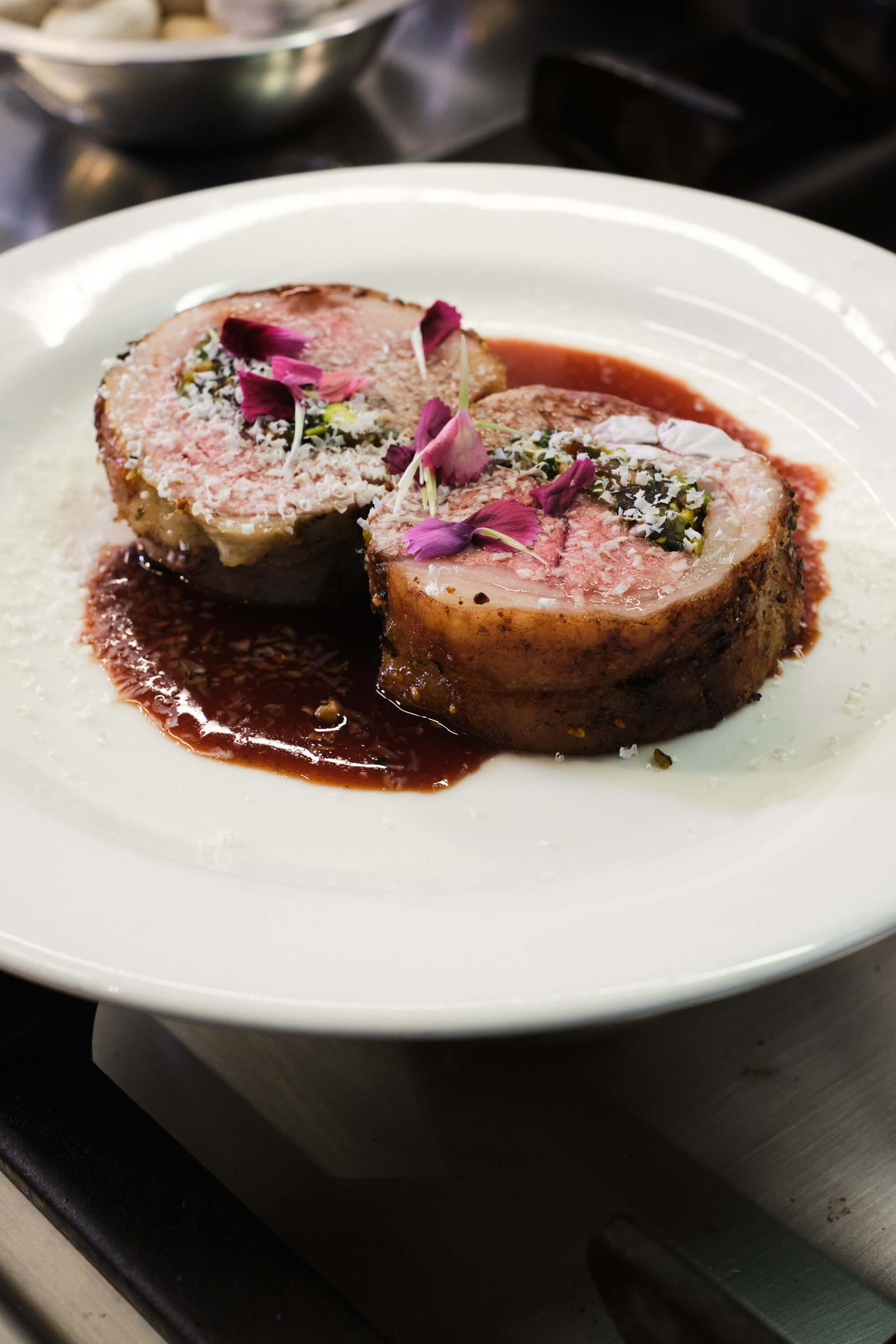Lambassadors Return to Australia: A May 2025 Culinary Journey
From paddock to plate, the Lambassador programme deepens global chefs’ connection with Australian lamb.

From paddock to plate, the Lambassador programme deepens global chefs’ connection with Australian lamb.
In May 2025, Meat & Livestock Australia (MLA) welcomed a diverse group of Lambassadors—leading chefs, educators and food professionals from across the globe—for a five-day immersive journey across Victoria. Designed to showcase the sustainability, quality and versatility of Australian lamb, this year’s tour built on the legacy of previous Lambassador trips while introducing fresh perspectives and international collaboration.
From vineyard lunches in the Yarra Valley to open-flame cook-offs and industry workshops, the 2025 Lambassador tour proved to be more than a culinary experience—it was an education in provenance, an exchange of global ideas, and a celebration of shared passion for premium food.
The journey began in Melbourne with a welcome reception at Bar Lourinhã followed by dinner at the bustling Chin Chin restaurant. Hosted by local food broadcaster Cam Smith, the event set the tone for the week: collaborative, energetic, and focused on exploring the cultural context behind Australia’s ingredients and hospitality. Chefs from regions including Japan, Malaysia, Korea, the US, Canada, Indonesia, and the UAE were introduced to the programme and each other over a shared table of bold flavours and lively conversation.
Day two transported the group to the Yarra Valley and the renowned Yeringberg farm. Run by the de Pury family for five generations, this historic property exemplifies the regenerative principles that underpin Australia’s lamb production. The farm’s lambs graze on natural pasture, rotating across sloping hillsides to preserve biodiversity and promote soil health.
The chefs toured the farm with owners Sandra and David de Pury, gaining insight into rotational grazing, seasonal lambing and integrated vineyard-livestock operations. One highlight was a planned outdoor lunch using Yeringberg lamb, prepared by Master Chef Tarek Ibrahim. When a sudden downpour struck, the chefs instinctively rallied to move the experience into a 100-year-old wool shed. With umbrellas protecting hot coals and serving platters repurposed on shearing tables, it became a defining moment of teamwork, resilience and culinary creativity.

The learning continued the next day at the historic Meletos precinct, where Lambassadors attended the Aussie Meat Academy. Hosted at The Stables, this two-part workshop delivered essential knowledge about Australia’s red meat integrity systems, animal welfare standards, grading processes and the AusMEAT Handbook. It offered clarity on the traceability systems that underpin MLA’s global reputation.
The second half of the session was hands-on: a full lamb butchery demonstration by Tom Bouchier of Peter Bouchier Butchers of Distinction. The chefs watched as Tom broke down the carcass and explained the culinary and commercial value of each cut. This sparked active discussion about lesser-used cuts and how international kitchens can embrace more sustainable menu design.
Later that evening, Lambassadors split into teams for a “self-cook” dinner challenge. Cooking over live flames in an open kitchen, they crafted dishes reflecting their native culinary styles. From harissa-rubbed lamb shoulders to soy-marinated ribs and Thai-style larb, the diversity of techniques and creativity on display reinforced lamb’s adaptability across cuisines.
On Day 4, the group visited Cedar Meats in Brooklyn—one of Australia’s largest and most advanced lamb processing facilities. This visit offered a transparent look at the post-farm stages of lamb production, including slaughter processes, hygiene controls, and cold-chain logistics. The group saw first-hand how Australian standards maintain quality and traceability from paddock to plate, especially for export markets.
In the afternoon, Lambassadors moved to the William Angliss Institute in Melbourne to engage in an inspiring cross-cultural session with students and staff. Chefs demonstrated dishes developed during the week and collaborated with students on new menu ideas.
Chef Troy Payne skilfully prepared a Rolled Lamb Loin filled with sweet dates and pistachios that bought a touch of the Middle East. See the recipe here.
A standout recipe from the day was the Malaysian-inspired Aussie Lamb Leg Berempah Sup, created by Chef Khairul Anuar Muhamad. This aromatic lamb soup, made with a blend of ten toasted spices and root vegetables, was served with charcoal-grilled thick toast—a nod to traditional mamak-style street food and a brilliant demonstration of lamb’s potential in Southeast Asian cuisine. See the recipe here.
Japanese chefs Motohiro Miki and Haruto Sekizawa inspired the audience with a traditional Okonomiyaki. A Japanese teppanyaki, savoury pancake dish filled with cabbage and tender lamb slices, topped with traditional sauces and garnishes.

The evening’s “Crawl and Bite” progressive dinner took the Lambassadors through some of Melbourne’s culinary gems, including Taxi Kitchen, Supernormal, Eau de Vie and Maha. Each venue featured Australian lamb in uniquely inspired dishes—from Sichuan-style lamb dumplings to Middle Eastern slow-braised shoulders—framing the protein as both versatile and globally resonant.
For many chefs, this was their first direct exposure to the Australian lamb industry. Others were returning to reconnect with people, producers and landscapes they’d encountered on previous trips. Regardless of background, all left with a renewed respect for the integrity of Australia’s food systems.
One of the chefs reflected: “There is something powerful about cooking with a product after walking the land it comes from, speaking with the people who raise the animals, and then passing that knowledge to the next generation.”
Others, shared plans to incorporate lesser-known lamb cuts into fine dining menus to spark conversation around sustainability.
Each Lambassador will now return home with new recipes, video footage, photography and tools to continue sharing the story of Australian lamb. MLA will support their efforts through upcoming promotions, menu campaigns and industry events.
At its core, the Lambassador programme is about connection. It links paddocks in Victoria to plates in Seoul, Dubai, the UK and beyond. It brings chefs, farmers and students together to share skills, values and stories. And it transforms international food advocates into lifelong ambassadors of Australian lamb.
As MLA’s Richard Sanders said, “You can’t build advocacy with a brochure. You do it by letting people walk the land, shake the hands, and taste the results.”